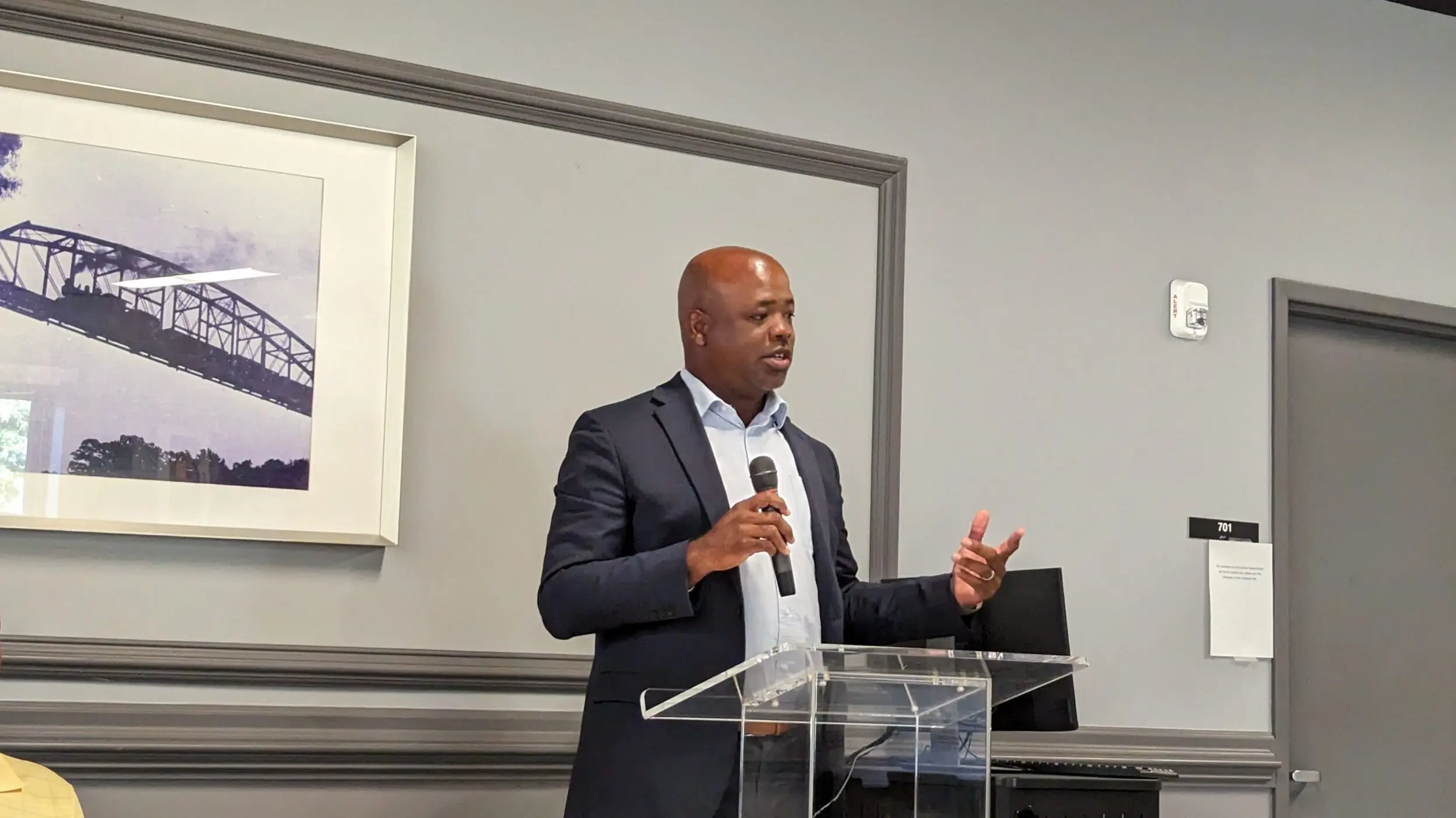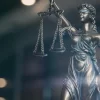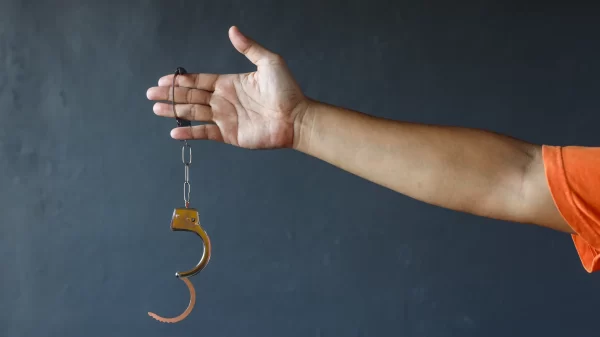|
Getting your Trinity Audio player ready...
|
On Monday afternoon, four Democratic members of the state Legislature who represent parts of Tuscaloosa talked with a few dozen voters at Shelton State Community College. The town hall was organized by the Tuscaloosa County Democratic Party and the local NAACP.
State representatives Chris England, D-Tuscaloosa, Curtis Travis, D-Tuscaloosa, A.J. McCampbell, D-Demopolis, and state Senator Bobby Singleton, D-Greenville, discussed the most recent legislative session for around ten minutes each and then fielded questions from the crowd.
One major topic was the death of the gambling bill because of the lack of one vote in the state Senate.
McCampbell told the audience that “whether we want to admit it or not, we have a whole lot of gambling and gaming that is occurring in the state of Alabama already, and right now a lot of it is illegal.” He argued that the revenue from legalizing gambling “could be used here in the state of Alabama to better our education, better the healthcare system.”
England also took some time to address one of the arguments against how the state Legislature handled the gambling bills last session. “There’s no such thing as a clean lottery bill,” he stated. “No such thing, it doesn’t exist. It’s a unicorn. It’s not real.”
“If someone comes to you saying you just need a clean lottery bill, understand that person is just telling you we want to give Native Americans a monopoly on gambling in the state of Alabama,” England continued. He explained that in his opinion a “clean” lottery bill would not raise anywhere near the desired revenue.
All four politicians also took time to address the other controversial topics that the state Legislature addressed this year. While none reported being happy with how the last legislative session turned out, they all said Democrats had played a key role in watering down some of the Republican proposals.
“I like the [legislative] process,” Singleton said. “But this year, I was glad when it was over. Because Republicans whooped our butts for the first five weeks in the session. They came out to shoot with DEI in the Senate: diversity, equity and inclusion. Then next there was ballot harvesting. Then they came with libraries.”
Singleton went on to say that when first introduced the DEI bill “almost just said ‘Black folk go back to Africa.’” But, thanks to Democratic efforts he claimed, it was eventually passed “almost in name only.” He made a similar claim about the ballot harvesting bill as well.
While they took credit for exacting compromises from Republican legislators, one of the apparent wins for Democrats in the recent session, the law letting families access IVF again after the Alabama Supreme Court’s ruling, was not touted as a total victory.
England remained very cautious, saying that regulations on IVF could still “make it so expensive that it’s unattainable in the state of Alabama” and that he personally thought the bill the legislature passed may be unconstitutional.
School funding heavily featured in all four’s speeches. At the end of his ten minutes, England even implored the Tuscaloosa crowd to vote yes on the September 23 referendum which would raise property taxes in order to better fund Tuscaloosa schools.
The CHOOSE Act, which funds a school choice voucher program, came under fire several times. Curtis said that what the bill is “doing is taking this money directly away from the education budget.” He also said the “half a billion dollars of impact on our public schools” had not been fully reckoned with.
Speaking after Curtis, Singleton explicitly linked the CHOOSE Act to the attempted censorship of public libraries: “The same people who want to give the parents the right to choose where to go to school don’t want to give other parents the right for their children to read whatever books they read in the library.”
After the panel finished their talks, the assembled community members had their questions about voting access, local infrastructure, and the mental health crisis answered.





















































